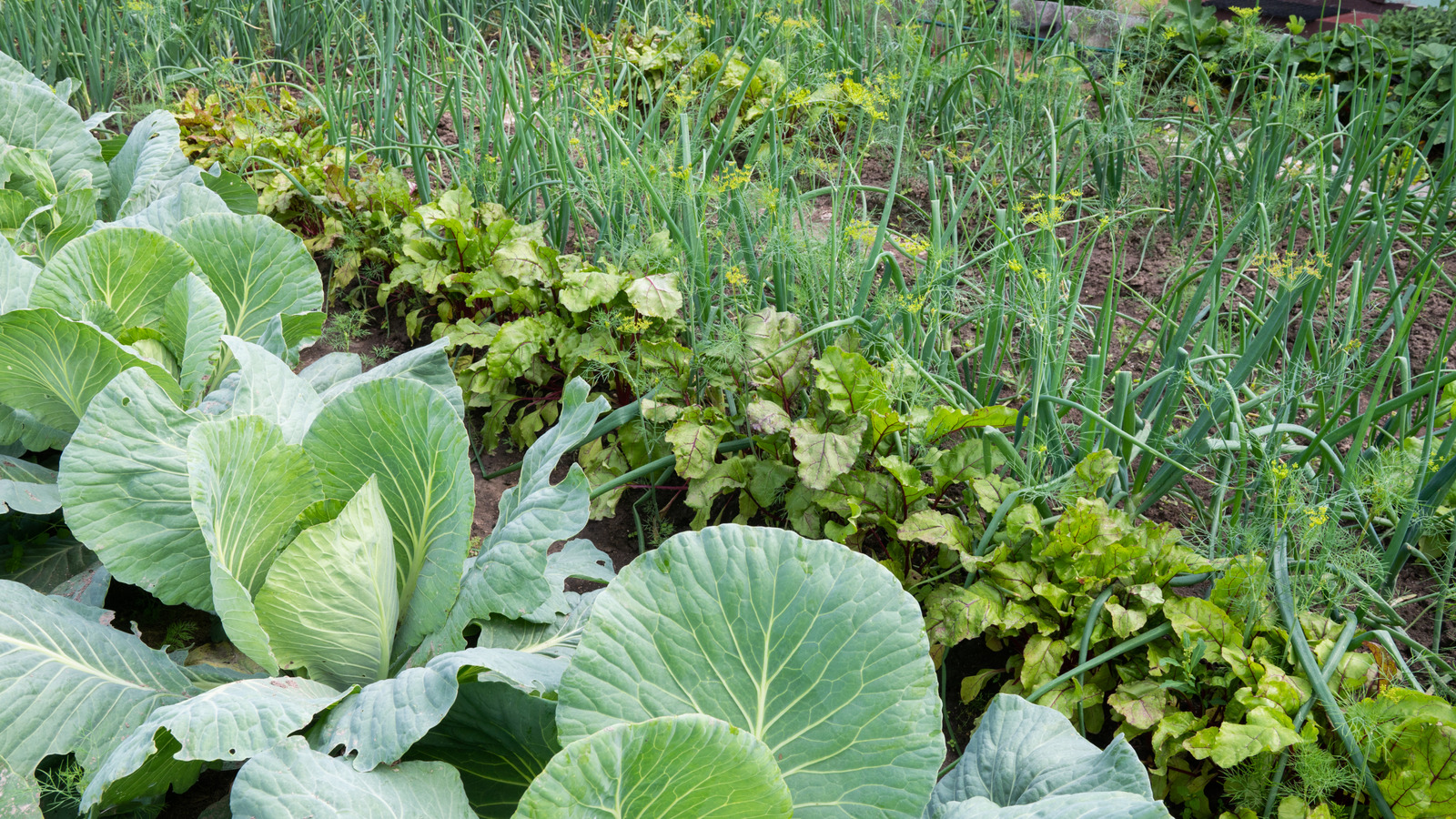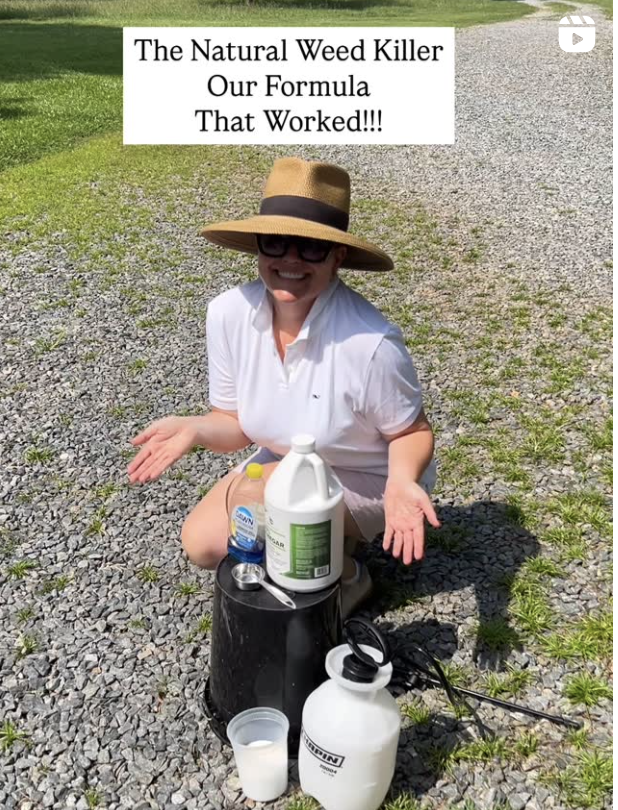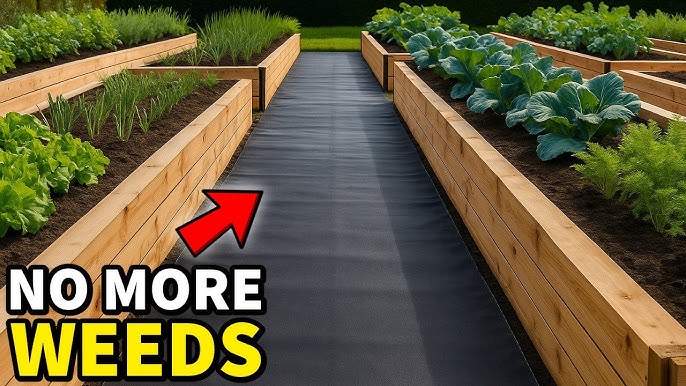Are weeds taking over your vegetable garden? You might be wondering if using weed killer is a quick fix to save your plants.
But before you grab that bottle, it’s important to know how weed killers work and whether they are safe for your veggies. Using the wrong product could harm your garden instead of helping it. Keep reading to discover the truth about using weed killer in your vegetable garden and learn the best ways to keep your plants healthy and weed-free.
This knowledge could save your harvest and give you peace of mind.
Types Of Weed Killers
Weed killers help control unwanted plants in your garden. Choosing the right type is important for vegetable gardens.
Some weed killers work only on certain plants. Others kill all plants they touch. It is important to know the difference.
Selective Vs Non-selective Herbicides
Selective herbicides kill specific weeds but not vegetables. They target broadleaf weeds or grassy weeds without harming crops.
Non-selective herbicides kill all plants they touch. They are useful for clearing areas but can damage your vegetables.
- Selective herbicides:Safe for vegetable rows, control certain weeds only.
- Non-selective herbicides:Kill all plants, useful for paths or bare soil.
Organic Vs Chemical Options
Organic weed killers use natural ingredients like vinegar or corn gluten. They are safer for the environment and your garden.
Chemical weed killers use synthetic compounds. They work faster but may harm beneficial insects or soil health.
- Organic options:Vinegar, boiling water, corn gluten, manual removal.
- Chemical options:Glyphosate, 2,4-D, dicamba, synthetic herbicides.
Risks Of Using Weed Killers
Using weed killers in a vegetable garden can cause problems. These chemicals might harm your plants and soil.
It is important to know the risks before applying any weed killer around your vegetables.
Impact On Soil Health
Weed killers can change the natural balance of soil. They may kill helpful microbes and insects in the ground.
These changes can make the soil less healthy and reduce its ability to support plants over time.
- Reduces beneficial microbes
- Harms earthworms and insects
- Causes soil to lose nutrients
- Can lead to poor soil structure
Effects On Vegetable Plants
Weed killers may damage vegetable plants if they come in contact. Some chemicals can stunt growth or kill plants.
Residues from weed killers can stay on plants and affect their health and yield.
- Leaves can get burned or discolored
- Roots may stop growing properly
- Fruit and vegetables might be smaller
- Plants may die if exposed to strong chemicals
Potential Health Concerns
Weed killers contain chemicals that can be harmful to humans. Eating vegetables with chemical residues can cause health issues.
Children, pregnant women, and pets are especially at risk when exposed to these chemicals.
- Possible skin and eye irritation
- Risk of poisoning if ingested
- Long-term exposure may cause serious illness
- Can contaminate water near gardens
Safe Application Methods
Using weed killer in a vegetable garden requires care to avoid harming your plants. Safe methods help control weeds without risking your vegetables.
Following proper steps and precautions ensures effective and safe weed control in your garden.
Spot Treatment Techniques
Apply weed killer only on the weeds, not on the vegetables. Use a small spray or brush to target weeds precisely. This limits chemical spread and protects your crops.
- Use a spray bottle with a narrow nozzle.
- Apply on calm days to avoid drift from wind.
- Cover nearby plants with a cloth if needed.
- Repeat only on new weed growth spots.
Proper Timing And Frequency
Choose the best time to apply weed killer to reduce risks. Early morning or late evening is ideal. Avoid applying before rain or watering.
| Timing | Reason |
| Early Morning | Weeds absorb chemicals well before heat |
| Late Evening | Less sun reduces chemical breakdown |
| After Weed Emergence | Only target visible weeds |
| Avoid Rainy Days | Prevents chemical wash-off |
Protective Gear And Precautions
Wear proper gear to protect your skin and eyes. Follow all safety instructions on the product label. Keep children and pets away during application.
- Wear gloves and long sleeves
- Use eye protection like goggles
- Wear a mask to avoid inhaling spray
- Wash hands and clothes after use
- Store weed killer safely out of reach

Credit: www.housedigest.com
Alternative Weed Control Strategies
Using weed killers in a vegetable garden can harm your plants and soil. You can try other ways to control weeds safely. These methods keep your garden healthy and weed-free.
Let’s look at some simple and natural ways to manage weeds without chemicals.
Mulching Benefits
Mulching covers the soil with a layer of material like straw or leaves. It blocks sunlight from reaching weed seeds. This stops weeds from growing well.
Mulch also keeps the soil moist and cool. It adds nutrients when it breaks down. This helps your vegetables grow strong.
- Prevents weed seeds from sprouting
- Retains soil moisture
- Improves soil health
- Reduces soil erosion
Manual Weeding Tips
Manual weeding means pulling weeds out by hand or using tools. It is safe for your vegetables and the environment. Remove weeds before they grow seeds.
Work when the soil is moist. Weeds come out easier with roots. Use a hoe or hand fork to loosen soil around weeds.
- Pull weeds after rain or watering
- Remove the whole root to stop regrowth
- Check your garden often for new weeds
- Wear gloves to protect your hands
Natural Weed Suppressants
Natural weed suppressants are plants or substances that stop weeds from growing. Some cover crops shade the soil and crowd out weeds. Others release natural chemicals to block weed growth.
Using these plants helps your garden stay healthy without chemicals. Examples include clover, rye, and mustard plants.
- Clover improves soil and blocks sunlight
- Rye grows fast and covers bare soil
- Mustard plants release natural weed blockers
- Apply corn gluten meal as a natural pre-emergent
Choosing The Right Products
Using weed killer in a vegetable garden needs careful thought. It’s important to pick the right products to keep your vegetables safe.
Let’s explore how to choose weed killers that won’t harm your garden. We’ll look at reading labels and selecting safe herbicides.
Reading Labels Carefully
Labels on weed killers give important information. They tell you how to use the product safely. Reading them helps you avoid harming your plants.
- Check if the product is safe for vegetables.
- Look for instructions on the correct application.
- Note any warnings about nearby plants.
Selecting Garden-safe Herbicides
Some herbicides are made for vegetable gardens. These are less likely to damage your plants. It’s wise to choose products labeled as garden-safe.
| Herbicide Type | Safe for Vegetables? |
| Non-selective | No |
| Selective | Yes |
| Organic | Yes |
:strip_icc()/bhg-spraying-apple-cider-vinegar-on-plants-EtgW8Goo4xpBDLthC9L0VS-96a62a2a710e4fcba31b6127f69d9dc6.jpg)
Credit: www.bhg.com
Post-application Care
Using weed killer in a vegetable garden needs careful follow-up care. This care helps protect your plants and soil.
Proper steps after applying weed killer keep your garden healthy and productive.
Watering And Soil Management
After applying weed killer, water the soil lightly. This helps the herbicide settle into the ground.
- Do not overwater; too much water can wash the chemical away.
- Keep soil moist but not soggy to support vegetable growth.
- Use mulch to keep soil temperature steady and retain moisture.
- Avoid tilling the soil soon after application to prevent chemical loss.
Monitoring Plant Health
Check your plants often for signs of stress or damage. Early detection helps prevent major loss.
| Symptom | Possible Cause | Action |
| Yellowing leaves | Herbicide drift | Water plants and remove damaged leaves |
| Wilting | Root damage | Reduce watering and improve soil drainage |
| Stunted growth | Soil chemical residue | Test soil and add organic matter |
Dealing With Residue
Residue from weed killers can harm future plantings. Remove leftover chemical carefully.
- Use compost or organic matter to help break down chemicals.
- Avoid planting sensitive vegetables immediately after treatment.
- Rinse tools and gloves after use to prevent spread.
- Wait recommended time before replanting in treated areas.

Credit: www.carmenjohnstongardens.com
Frequently Asked Questions
Can You Safely Use Weed Killer In Vegetable Gardens?
Using weed killer in vegetable gardens is risky. Many herbicides can harm edible plants or contaminate soil. Always choose products labeled safe for vegetable gardens and follow instructions carefully to avoid damage or health risks.
What Types Of Weed Killers Are Safe For Vegetables?
Organic or natural herbicides, like vinegar-based solutions, are generally safer for vegetables. Avoid synthetic chemicals unless labeled for edible gardens. Always test on a small area first and use minimal amounts to protect your crops.
How Long After Weed Killer Can You Plant Vegetables?
Wait time varies by product but generally ranges from 7 to 30 days. Check the label for specific instructions. Waiting ensures chemicals break down, preventing harm to new vegetable seedlings or plants.
Can Weed Killer Contaminate Vegetable Garden Soil?
Yes, some weed killers leave residues that persist in soil. This can affect plant growth and food safety. Use only approved herbicides for vegetable gardens and avoid overapplication to minimize contamination risks.
Conclusion
Using weed killer in a vegetable garden needs careful thought. Some products can harm your plants or soil. Choose safe, garden-friendly options and follow instructions closely. Always test on a small area first. Manual weeding and mulch can reduce weed growth too.
Protect your veggies and enjoy a healthy harvest. Simple steps make a big difference in your garden’s success.


